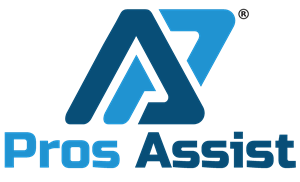Whilst the UK Government provides much support for entrepreneurs and self-employed businesses, there are some that aren’t towing the line. It seems that across a number of industries, there are instances where “cottage industries” are being set up to take advantage of subcontracting work and avoiding paying the right amount of tax. This is something that HMRC wants to address to ensure that these “cottage industries” are operating in line with tax law and employment law on all levels.
Cottage Industries Explained
In case you’re not familiar with this term, here’s a little background into what “cottage industries” are. In general, “cottage industries” are manufacture based, usually from a home or domestic property, rather than a factory.
They’re not a new phenomenon either, as before the Industrial Revolution in Britain, it wasn’t uncommon for many people to make products in their own home, which included sewing, lace making or household manufacturing that they would then sell to the public or a supplier for additional income.
In many cases, business operators would buy raw materials, give them to individuals to manufacture into a product and then collect the finished goods to sell on for a greater profit. After the Industrial Revolution, this type of business operation would generally happen on a larger scale in factories.
The Issues with Cottage Industries
Cottage industries come in many forms, from hand-made soap production, to home produced food products, cannabis farms and even call services. As it can span such a broad range of industries, it’s even more important to ensure that businesses are operating above the law and inline with HMRC regulations.
In the modern day, the same principles apply that cottage industries are generally those producing goods or services from their own homes, often part time, in order to sell them on. For some it can be a great way to subsidise additional income, get flexible working hours or to indulge a passion. But problems can arise, when “cottage industries” don’t follow the rules, by appropriately registering as a business with HMRC. As any form of self-employed business they should be declaring their profitable income, paying the necessary tax and complying with employment laws if they are outsourcing parts of the manufacturing processes to home workers.
Consider the Consequences
In a bid to tackle incidents where cottage industries are flying under the radar and benefiting from untaxed business profits, HMRC is set to have a crack down. This could result in heavy fines, back-dated tax repayments and even criminal charges in extreme cases.
Just recently the Information Commissioners Office (ICO) reported that they had uncovered an illegal cottage industry operating as a telemarketing company from a house in Sale, Manchester. The company was raided after the ICO received 6,000 complaints of nuisance automated calls from the company, which had coordinated millions of unsolicited calls as part of a network of telemarketing companies that were profiting from illegal lead generation. Whilst this is an extreme case, it is also a perfect example of a cottage industry that was deliberately breaking the law for their own gain and compromising people’s personal information in the process.
Of course, not all independent businesses are operating outside of the law, but if you are self-employed you should ensure that your business is registered with HMRC with up to date accounts so there aren’t any unwanted ramifications.

